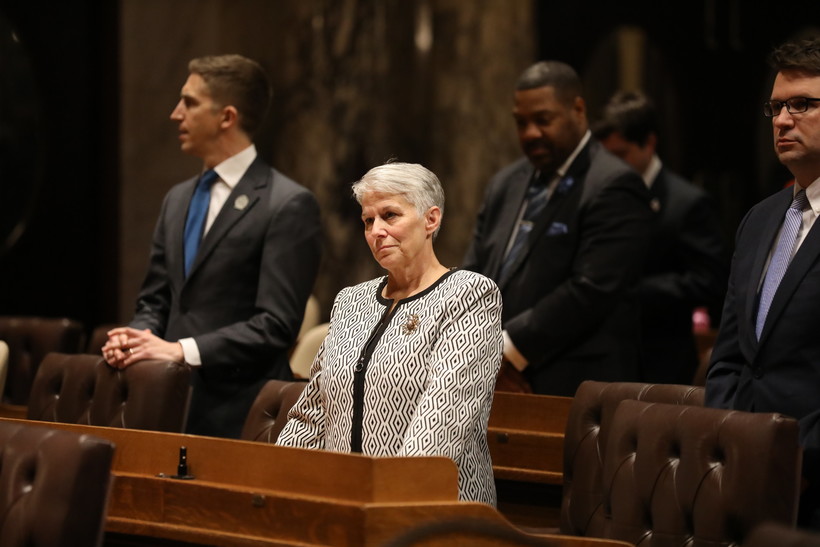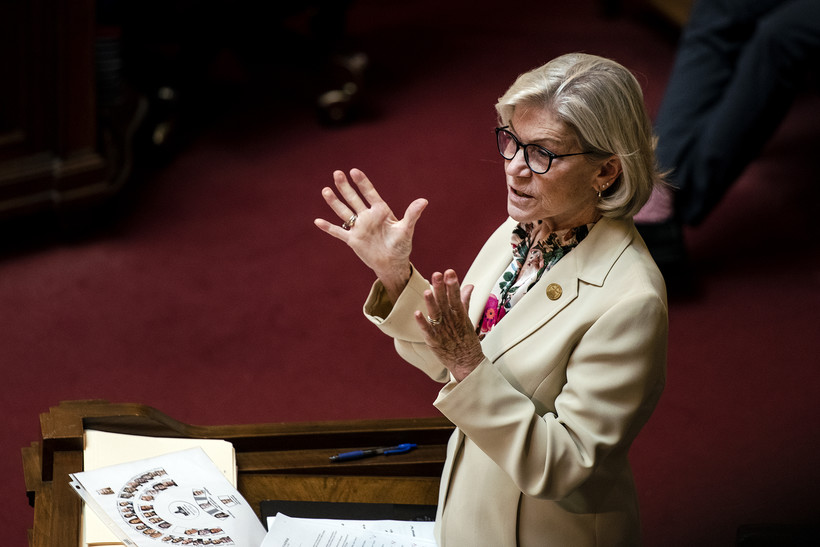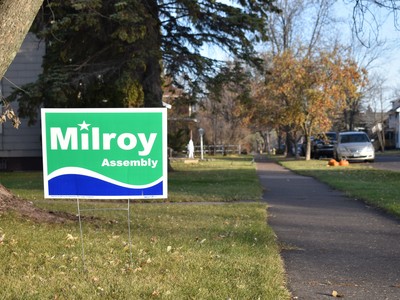Three Northern Assembly Districts Held By Democrats Up For Grabs
Retirement of three representatives creates opportunity for Republicans.
In far northern Wisconsin, several districts that have long been a Democratic stronghold are up for grabs after incumbents announced they won’t be seeking re-election this fall. More than two dozen state lawmakers from both sides of the aisle have announced they won’t run again.
State Rep. Nick Milroy, D-South Range, announced Thursday he’s retiring from public office to spend more time with his wife Julie and three children.
“I have focused on making sure that northern Wisconsin gets its fair share and being a voice for those who don’t always have one … I feel I have much more important work to focus on. My children are at an age where they need their dad around more than the Legislature does,” said Milroy in a statement.
The representative of the 73rd Assembly District joins eight other Democrats in the state Assembly who’ve announced they’re not running again, including Rep. Beth Meyers of Bayfield. She announced in January that she’s stepping down. In February, Senate Minority Leader Janet Bewley, D-Mason, announced she also wanted to spend more time with her husband and grandchildren.
As of Thursday, nine Democrats and 13 Republicans in the Assembly have announced they won’t seek re-election in addition to three Republicans and three Democrats in the Senate, according to the Associated Press.
Meyers said a mix of reasons has led more lawmakers to resign or retire from public office, including redistricting.
The Wisconsin Supreme Court ruled 4-3 in March that Gov. Tony Evers’ redistricting plans were the best example of a “least change” map that most closely resembles the map passed by the Legislature in 2011. But the U.S. Supreme Court struck down Evers’ map and sent it back to the state Supreme Court for review. On Friday, the state Supreme Court chose legislative maps drawn by Republicans.
Larger groups of lawmakers often retire during redistricting cycles, according to Kathleen Dolan, distinguished professor of political science at the University of Wisconsin-Milwaukee.

Minority Caucus Secretary, Rep. Beth Meyers, D-Bayfield, is seen at Gov. Tony Evers’ second State of the State address at the State Capitol on Jan. 22, 2020 in Madison, Wis. Coburn Dukehart/Wisconsin Watch
“There’s just a little bit of unpredictability,” said Dolan.
Meyers said redistricting didn’t play a role in her decision to step down from the 74th Assembly District. She highlighted long commutes to the state Capitol, her husband’s retirement several years ago, her aging mother and grandson as reasons for her departure.
“Because of the commute, I can be gone three or four days a week,” said Meyers. “You really do miss out on a lot of everyday things that happens with your family.”
Dolan said geography and time away from family may certainly play a role for some lawmakers in addition to political ambitions, intense partisanship and the COVID-19 pandemic.

Senate Minority Leader Janet Bewley speaks on the floor Wednesday, June 9, 2021, at the Wisconsin State Capitol in Madison, Wis. Angela Major/WPR
“I don’t think there’s some endemic problem in Wisconsin that is fundamentally different from other states. I will say that the political climate and the hyper partisanship and the gerrymandering aspects of Wisconsin probably make it pretty unpleasant for some people in the Legislature,” said Dolan. “But, that’s not exclusive to Wisconsin.”
Bewley, 70, said the COVID-19 pandemic has caused lawmakers to re-evaluate their careers much like people in other sectors. She wants to explore a new chapter in her life while she’s healthy and make room for a younger generation of candidates.
Evers’ map and the Republican-drawn map outlining state legislative districts are very similar to the state’s current maps, preserving Republican majorities in the Legislature. But, the Legislature’s plan gives Republicans a greater advantage in maintaining power.
The three districts represented by Bewley, Meyers and Milroy have been Democratic strongholds for decades. Even so, the three lawmakers have faced more competitive races in recent years. In 2020, Milroy was re-elected by a margin of 139 votes against Republican challenger Keith Kern — the closest race in the Legislature that year.

Rep. Nick Milroy, D-South Range, was narrowly re-elected Tuesday, Nov. 3, 2020, by just 139 votes as Wisconsin saw increased turnout in the presidential election. Danielle Kaeding/WPR
The 2020 presidential race between former President Donald Trump and President Joe Biden increased voter turnout at the polls. That year, Meyers beat out Republican businessman James Bolen by 3 percent of the vote or roughly 1,000 votes — the closest race for Meyers since she was first elected in 2014. In 2018, Bewley defeated Bolen by around 2 percent of the vote or just under 1,700 votes.
Bewley said she’s confident Democrats will continue to retain those districts. She said the issue is getting people out to vote and focusing on relevant issues ranging from education to health care rather than inflammatory rhetoric. Bewley said she thinks that has grown worse over the years and that some lawmakers have grown weary of the hostility.
“I don’t think we’re going to see an escalation of hostility,” said Bewley. “If anything, I could anticipate that it’s going to ease up, and we’re going to very gradually get back to a place of mutual respect.”
Listen to the WPR report here.
In far northern Wisconsin, several districts long held by Democrats are up for grabs was originally published by Wisconsin Public Radio.
























Does the Democratic Party of Wisconsin (DPW) have any specific GOTV plans for those northern districts?